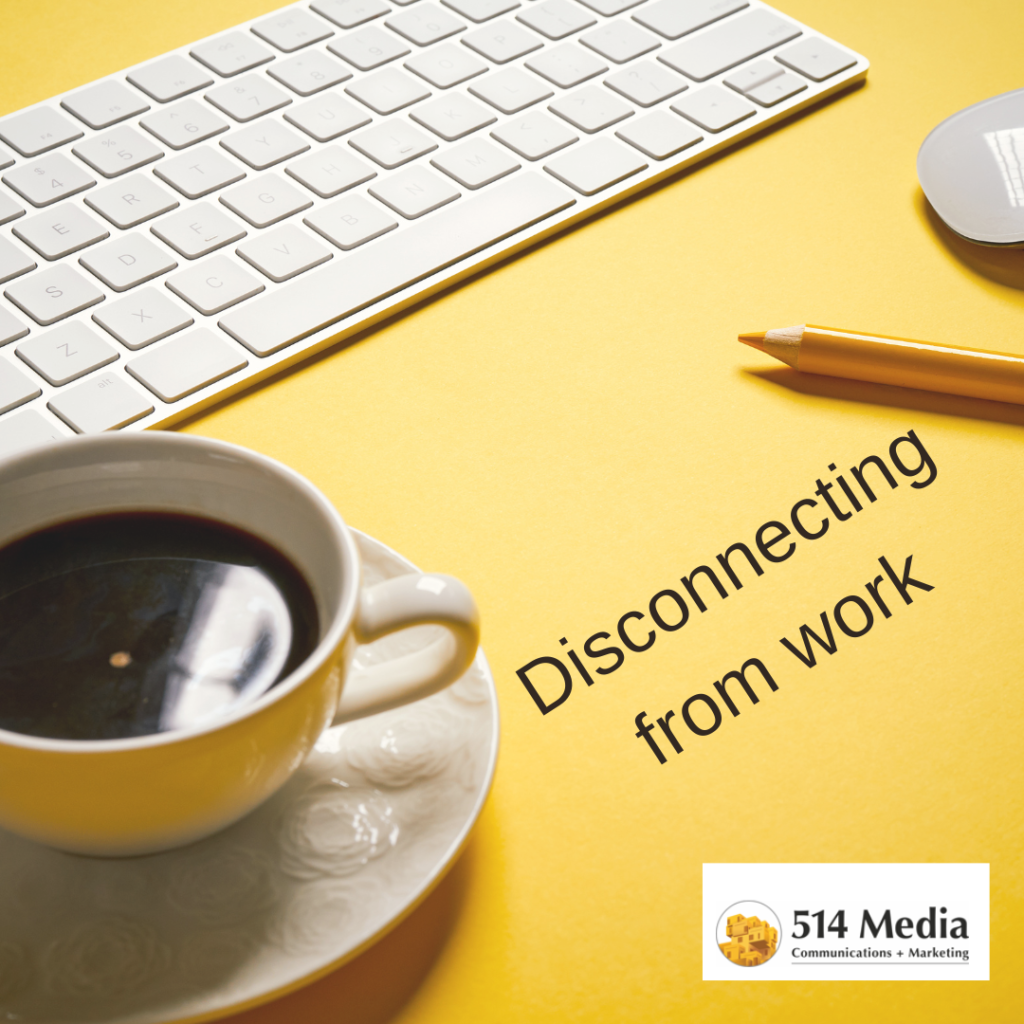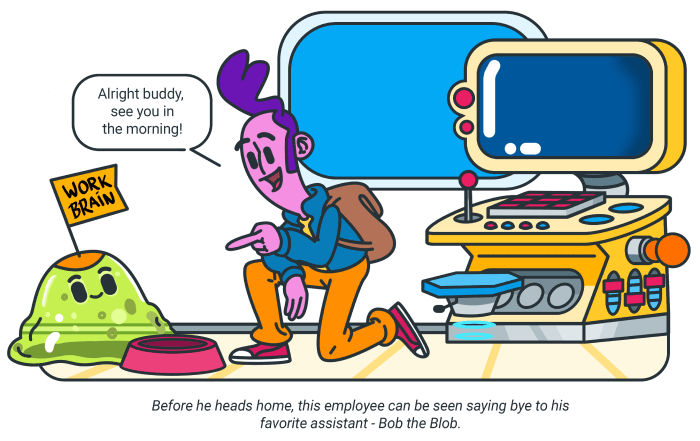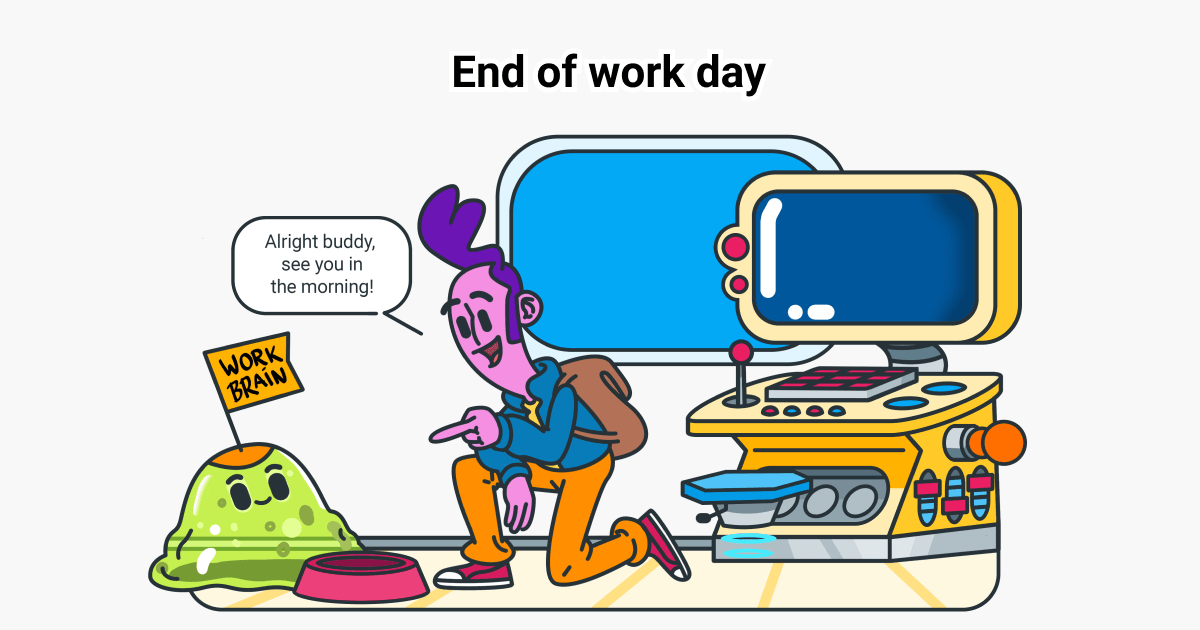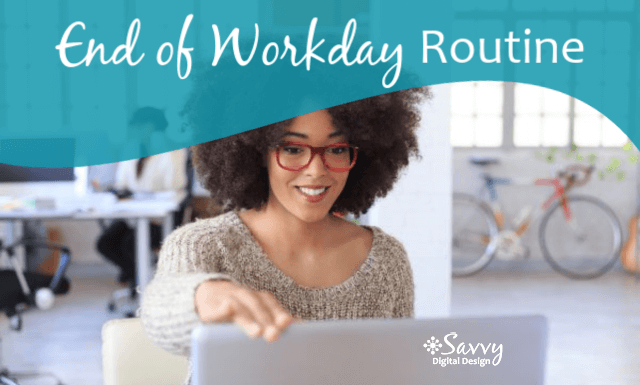The Importance Of Disconnecting: A Comprehensive Look At The End Of The Workday
The Importance of Disconnecting: A Comprehensive Look at the End of the Workday
Related Articles: The Importance of Disconnecting: A Comprehensive Look at the End of the Workday
Introduction
With enthusiasm, let’s navigate through the intriguing topic related to The Importance of Disconnecting: A Comprehensive Look at the End of the Workday. Let’s weave interesting information and offer fresh perspectives to the readers.
Table of Content
The Importance of Disconnecting: A Comprehensive Look at the End of the Workday

The modern workplace, characterized by constant connectivity and a blurring of boundaries between professional and personal life, often presents a challenge: knowing when to stop. The concept of "going home for the day" has become increasingly nuanced, as the traditional 9-to-5 model evolves. This article aims to delve into the significance of delineating work hours and prioritizing personal time, examining the benefits of a clear separation between professional and personal life.
The Evolution of Work-Life Boundaries:
Historically, the transition from work to home was marked by a physical separation. Leaving the office signified the end of the workday, allowing for a distinct break from professional obligations. However, the advent of technology has blurred these lines, with smartphones and laptops making work accessible at any time and from any location. This constant connectivity, while offering flexibility, can also lead to feelings of being "always on" and difficulty disconnecting.
The Psychological Impact of Constant Connectivity:
The constant availability fostered by technology can have detrimental effects on mental well-being. Research suggests a correlation between extended work hours and increased stress, anxiety, and burnout. The lack of a clear boundary between work and personal life can lead to feelings of exhaustion, difficulty relaxing, and impaired sleep quality.
Benefits of Disconnecting:
Establishing a clear end to the workday, even in a technologically driven environment, offers numerous benefits:
- Improved Work-Life Balance: A defined separation between work and personal life promotes a healthier balance, allowing for time for personal pursuits, family, and leisure activities.
- Reduced Stress and Burnout: By setting limits on work hours, individuals can reduce the risk of burnout and improve their overall mental well-being.
- Enhanced Productivity: Taking breaks and prioritizing personal time can actually improve focus and productivity during work hours.
- Improved Sleep Quality: Disconnecting from work allows for a more restful night’s sleep, leading to increased energy and focus the next day.
- Strengthened Relationships: Dedicate time to family, friends, and hobbies, fostering stronger relationships and a sense of fulfillment.
Strategies for Effective Disconnection:
Implementing strategies to effectively separate work and personal life can be crucial for maintaining a healthy balance:
- Establish Clear Boundaries: Set specific work hours and adhere to them as much as possible. Avoid checking emails or responding to work-related messages outside of these designated times.
- Designate a Dedicated Workspace: Create a dedicated workspace for work and avoid bringing work-related materials into personal spaces.
- Utilize Technology to Your Advantage: Use technology to your advantage by scheduling emails, setting "do not disturb" modes, and utilizing time management tools.
- Engage in Relaxing Activities: Participate in hobbies, exercise, spend time with loved ones, or engage in activities that help you unwind and de-stress.
- Communicate with Colleagues: Inform colleagues and supervisors of your work hours and expectations for communication outside of these times.
FAQs on Disconnecting from Work:
-
Q: How do I manage urgent work requests outside of work hours?
A: Establish clear communication protocols for handling urgent matters. Designate a colleague or supervisor to handle emergencies and agree on a timeframe for responding.
-
Q: What if my job requires constant availability?
A: Discuss your concerns with your supervisor. Explore options for adjusting work hours or implementing strategies to minimize work-related distractions during personal time.
-
Q: How do I deal with colleagues who constantly work late or are always available?
A: Focus on your own boundaries and communicate your expectations clearly. It’s important to prioritize your well-being and not feel pressured to match others’ work habits.
Tips for Effective Disconnection:
- Set a "Work-Free Zone": Designate specific areas in your home as "work-free zones," such as bedrooms or dining areas, to avoid blurring the lines between work and personal life.
- Utilize "Out of Office" Messages: Set an "out of office" message on your email and phone to inform others of your unavailability during non-work hours.
- Engage in "Mindfulness" Practices: Incorporate mindfulness techniques like meditation or deep breathing exercises to help clear your mind and transition from work to personal time.
- Take Regular Breaks: Even during work hours, take regular breaks to step away from your screen and engage in activities that help you recharge.
Conclusion:
The concept of "going home for the day" in the modern workplace is not merely a physical act but a necessary psychological and emotional practice. By setting clear boundaries, prioritizing personal time, and implementing effective strategies for disconnecting, individuals can foster a healthier work-life balance, reduce stress, improve productivity, and enhance overall well-being. Ultimately, embracing the concept of ending the workday is not about avoiding work but about recognizing the importance of prioritizing personal time and cultivating a sustainable and fulfilling lifestyle.








Closure
Thus, we hope this article has provided valuable insights into The Importance of Disconnecting: A Comprehensive Look at the End of the Workday. We appreciate your attention to our article. See you in our next article!